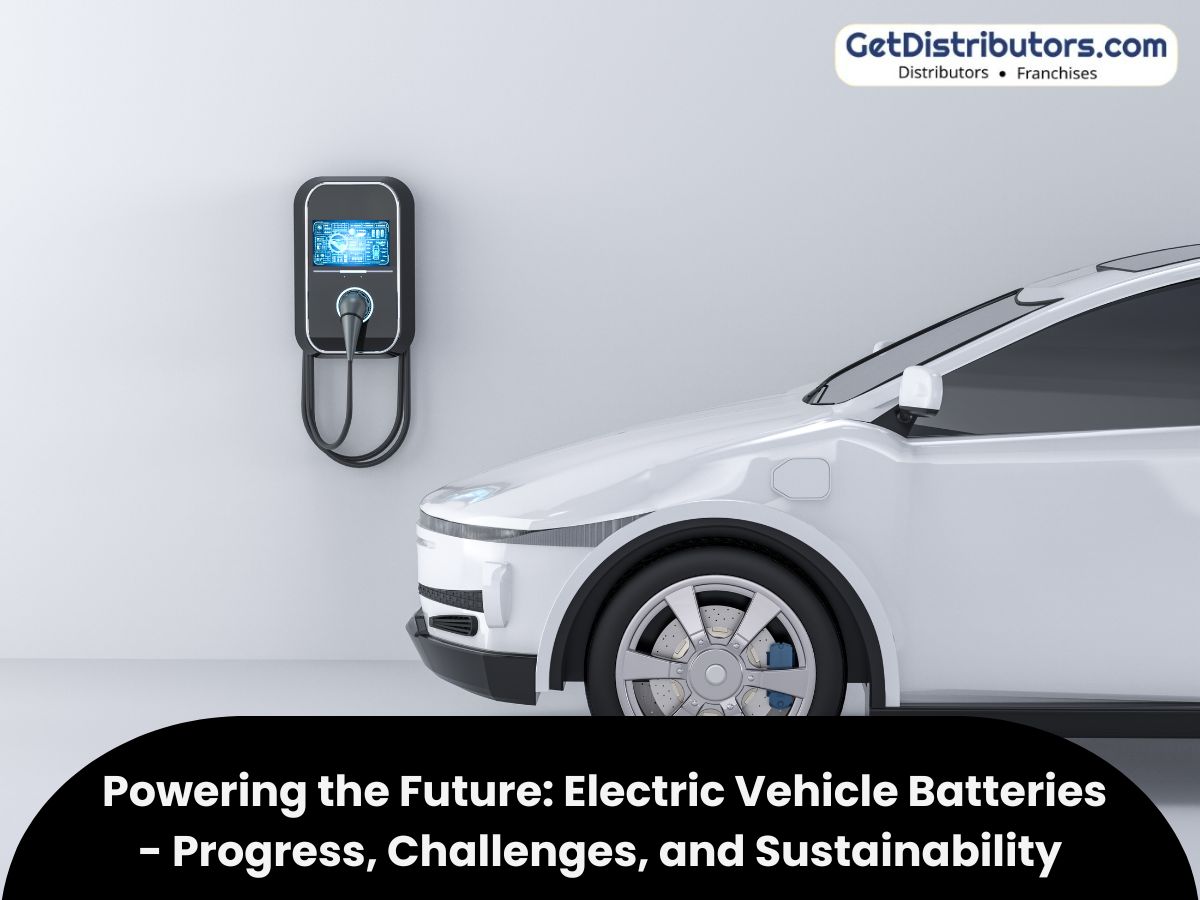Powering the Future: Electric Vehicle Batteries – Progress, Challenges, and Sustainability
The call for sustainable transport highlights the urgency of addressing the environmental impacts of conventional vehicles, such as fuel combustion and greenhouse gas emissions Foremost among these changes is the electric car battery, an important component affecting efficiency, range, and large environmental footprint In this blog we will explore the current status, challenges and sustainability considerations for electric vehicle batteries and explore their role in shaping the future of transport.
Progress in Battery Technology
Battery technology has made incredible progress recently with the main drive coming from strong R&D efforts. Engineers and scientists are constantly pushing the limits of battery capacity to drive electric vehicles to the next level. Advances in materials science, such as the introduction of silicon anodes and solid-state electrolytes, are the next major steps in the journey to increase battery efficiency and safety.
In addition, advances in manufacturing processes have created economies of scale, making electric car batteries more affordable and the percentage of consumers Automakers such as Tesla, Panasonic, and LG Chem Billions of dollars in the construction of giga plants to meet the growing demand for EV batteries -Invest of Rs ., thereby reducing costs and accelerating the transition to EVs
Challenges Facing Electric Vehicle Batteries
While electric car batteries have made impressive strides, they still face many challenges to overcome to reach their full potential. The first major problem is range anxiety, which is the fear of not having control before you reach your destination. While electric cars have made great strides in recent years, they are still not that good compared to conventional gas-powered vehicles. Long-distance travel is only possible if the battery technology is innovated and the battery infrastructure to support it is expanded.
Another problem is the lack of battery life caused by cycling, temperature fluctuations, and chemical reactions. Not only does battery failure hamper the efficiency and mobility of electric vehicles, but it also creates problems with recycling and disposal is also important as this will help the environment’s environmental impacts to improve product efficiency.
Sustainability Considerations
With the increasing number of electric vehicles, the sustainability of battery production and disposal has become a key issue. The extraction and processing of raw materials such as lithium, cobalt, and nickel, is associated with ecological degradation, human rights violations, and social inequality in mining areas If to overcome these barriers, appropriate evaluation practices need to be implemented to promote transparency of the supply chain, and investing in innovations that minimize environmental impact.
Another issue is that reusing and reusing electric car batteries is important in reducing waste and saving fewer resources Recycling technology is developing very fast, therefore, it can be reversed to recover metals and residues from scrap batteries and use them to make new batteries Through the installation, we can reduce the environmental impact of electric vehicles and create a more sustainable future regular results.
Conclusion
FAQ’s
What are the main types of batteries in electric cars and which ones show better performance and longer life?
How far can electric cars go before they need to be recharged, and what methods are being used to address distance concerns?
This issue addresses the problem of driving electric vehicles and explains how technological advances, industry developments, and consumer education can help reduce anxiety among various sectors and enable EV utilization has increased
What issues are associated with the recycling and disposal of electric vehicles, and how can they be best addressed for minimal environmental impact?
What role do government policies and incentives play in supporting the uptake of electric vehicles and battery R&D?
This question examines the role of government intervention through the implementation of exemptions, emissions regulations, to provide consumers with incentives to choose electric vehicles and promote the development of battery technology, and encourage innovation, and entrepreneurship
What role do electric vehicles play in sustainable transportation, and what are the key considerations for a greener mobility future?
Disclaimer: The information provided is for general purposes only and does not constitute professional advice. The author and publisher do not guarantee the accuracy or completeness of the content. Business decisions should be made after thorough research and consultation with professionals. The mention of specific companies or products does not imply endorsement. Financial estimates are based on available data and may change. The author and publisher are not liable for any actions taken based on the content. Readers are advised to independently verify information before making business or financial decisions.
You may also like:






